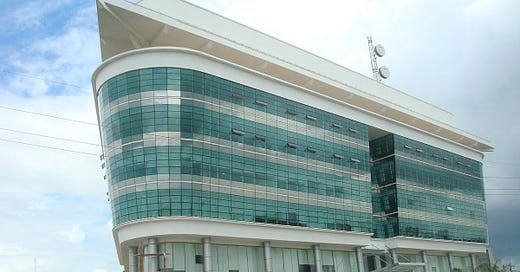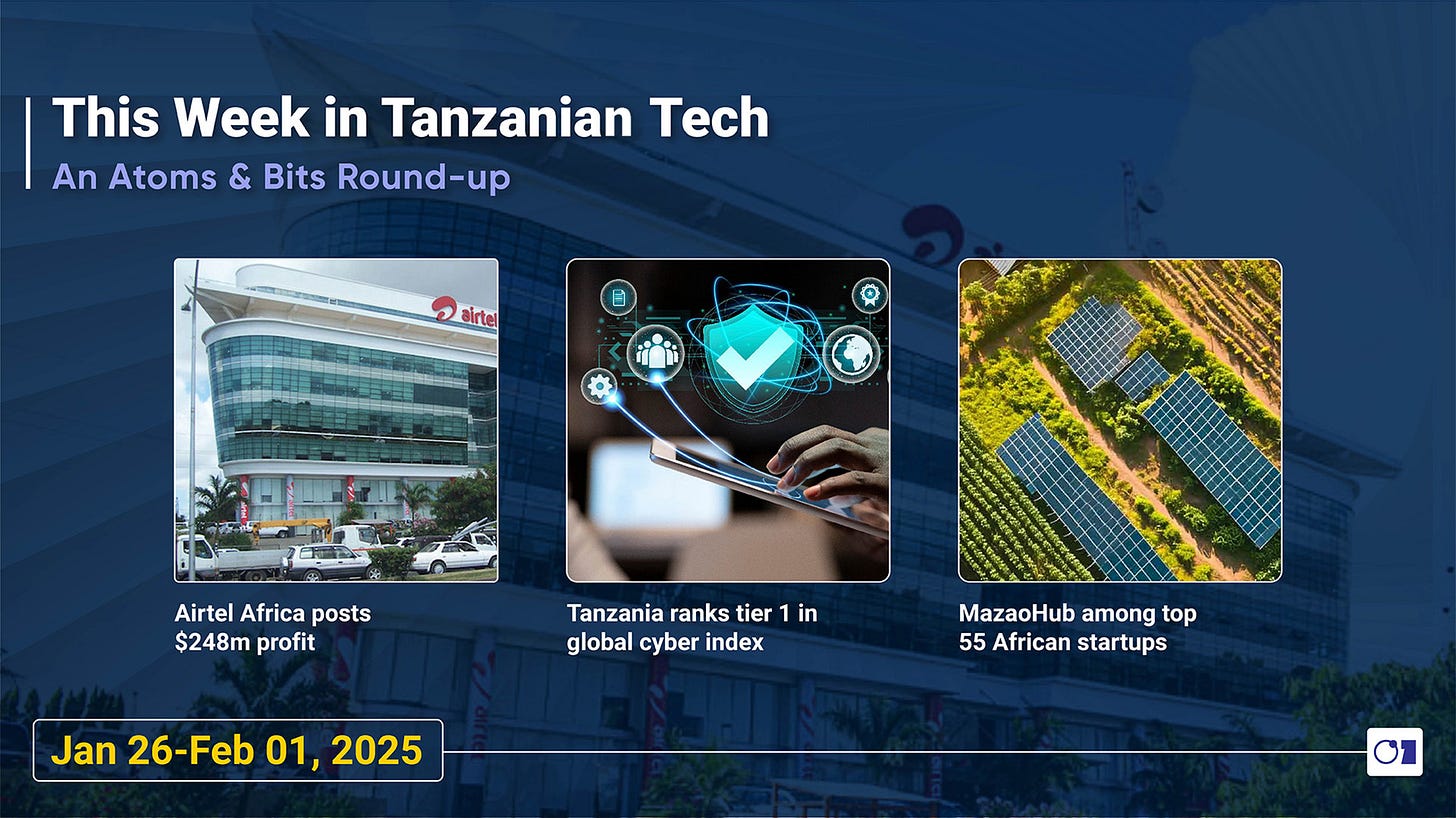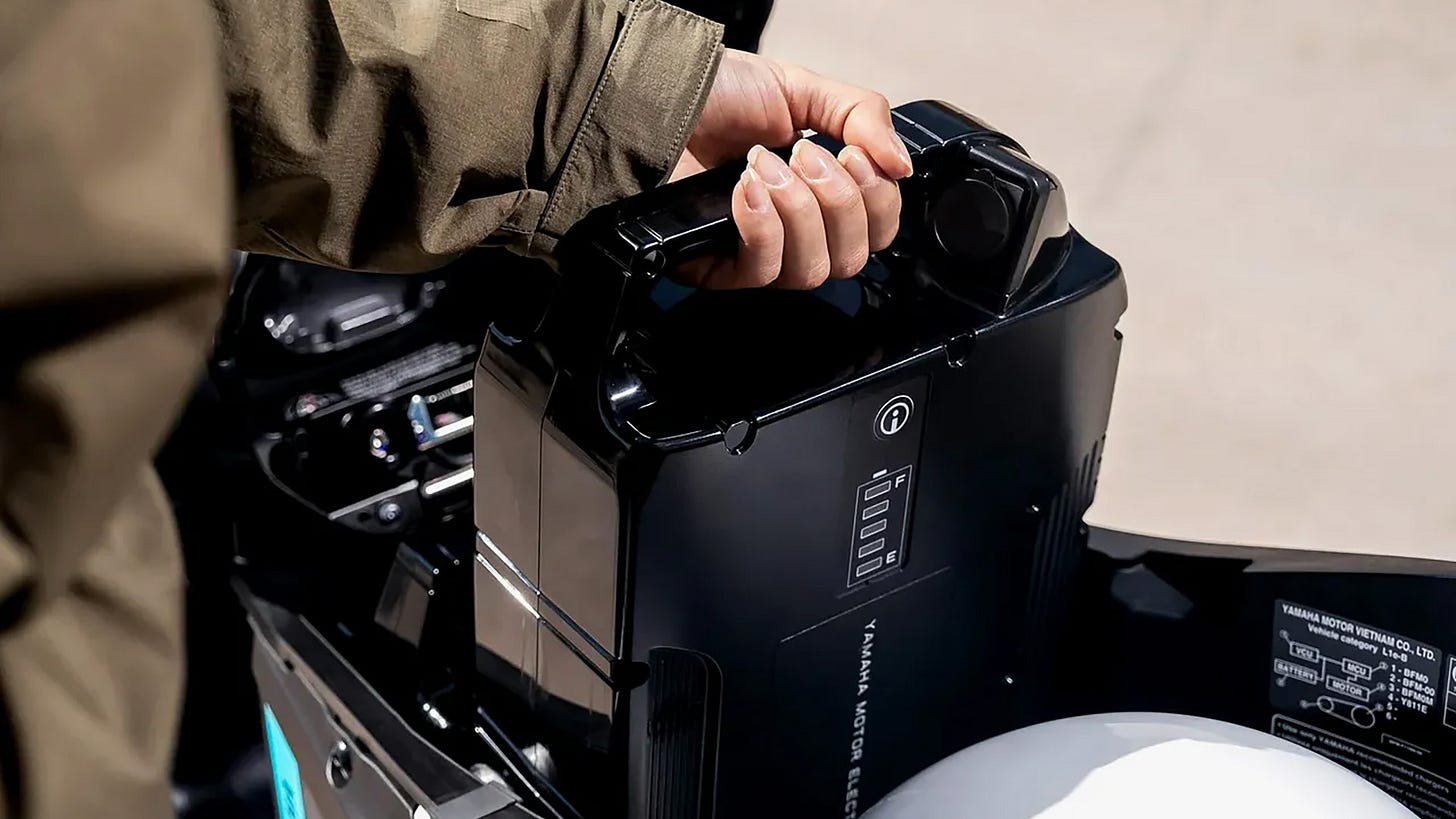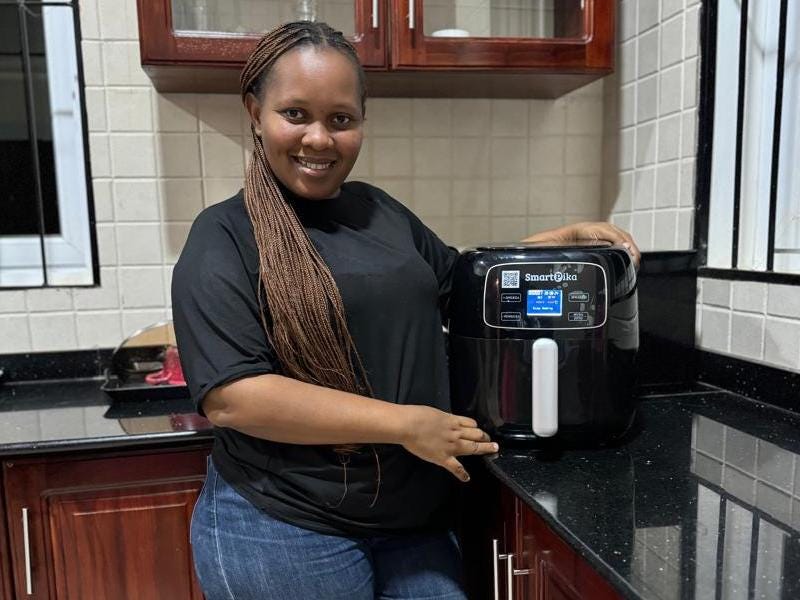Last week saw the Dar es Salaam Stock Exchange letting Mixx (Tigo Pesa) app users buy stocks directly, while Tanzania’s ICT Commission announced an open system for hospitals to share patient data.
In addition, Zanzibar streamlined loan repayments through Airpay.
Our analysis looks at these shifts alongside new entrants in clean energy (SmartPika) and e-mobility (Spiro).
We unpack what each milestone means for Tanzania’s tech ecosystem.
1. DSE Expands Digital Trading Through Yas Integration
The Dar es Salaam Stock Exchange (DSE) has signed an agreement to integrate stock trading into the Mixx Tanzania Super App.
This is DSE’s second digital expansion after connecting with M-Pesa’s 1 million active users in November 2024.
The new integration will let Tanzanians open share trading accounts and buy stocks directly through the Mixx (previously Tigo Pesa) app. Starting March 2025.
For retail investors, that removes the need to visit brokers or DSE offices to start trading - a barrier that has historically limited capital markets participation across East Africa.
DSE’s mobile strategy targets Tanzania’s growing digital finance user base, with 36% of Tanzanians now using smartphones.
The exchange aims to replicate the success of mobile trading in neighboring Kenya, where similar digital access increased retail investor numbers to 1.48 million in 2024.
Twenty eight companies are listed on the Dar es Salaam Stock Exchange with a combined value of TZS 18.54 billion ($7.2 Mn).
Today (Feb 3) alone, trading activity involved 1.45 million shares traded across 988 deals, for a total transaction value of TZS 3.66 billion ($1.42 Mn).
2. Tanzania Earns Top Cybersecurity Ranking in Global Index
Tanzania has secured a Tier 1 ranking in the International Telecommunication Union’s 2024 Global Cybersecurity Index, becoming one of Africa's leaders in digital governance.
This rating follows two years of implementing the Personal Data Protection Act (2022) and launching a digital economy strategy for 2024-2034.
The Personal Data Protection Act requires companies to obtain explicit consent before using customer data. It brings Tanzania in line with international data protection standards.
Since implementation, over 7,00 organizations have registered as data handlers/controllers through the official compliance system.
The digital economy strategy complements this framework by outlining data security requirements for Tanzania’s growing digital services sector. This dual approach addresses both consumer protection and business innovation needs.
Tanzania’s rise in global cybersecurity rankings comes as digital transactions increase, with mobile money transfers alone reaching TZS 155 trillion in 2024.
The stronger data protection framework particularly impacts fintech companies, digital lenders, and e-commerce platforms operating in Tanzania.
For businesses, the Tier 1 ranking reduces barriers to international partnerships, especially with companies from regions requiring strong data protection compliance like the European Union.
Local startups can now demonstrate compliance with global standards when seeking international investment or partnerships.
3. Healthcare Sector Tests New Digital Record System
According to the World Bank, digital investments can help governments save up to 15% of health costs.
Tanzania’s ICT Commission (ICTC) has launched a healthcare digitization program following a cross-sector workshop in Dar es Salaam.
The initiative prioritizes digital health records and interoperable systems to solve current challenges in patient data management.
Dr. Nkundwe Mwasaga, ICTC Director General, outlined plans for connecting medical facilities through shared digital infrastructure.
This addresses a key pain point: patients currently restart their medical histories when visiting different hospitals due to isolated record systems.
The Ministry of Communication and Information Technology (MCIT) invited development of digital health wallets for personal medical records.
These wallets can reduce treatment delays and medical errors by giving healthcare providers instant access to patient histories, prescriptions, and test results.
The initiative builds on Tanzania’s expanding digital infrastructure, with the National ICT Broadband Backbone (NICTBB) now connecting 82% of district hospitals.
Previous intervention programs in Kilimanjaro showed electronic medical records (EMRs) reducing patient wait times by 45%.
EMRs can also significantly reduce medication errors, which are most commonly made by intern doctors.
Dr. Emmanuel Mkilia, Director General at the Personal Data Protection Commission (PDPC), emphasized that the new systems will comply with Tanzania’s data protection laws.
The PDPC will ensure patient information remains secure as healthcare facilities adopt digital tools.
4. Public-Private Partnership Streamlines Credit Settlement
The Zanzibar Economic Empowerment Agency (ZEEA) and Airpay Tanzania have partnered to digitize government loan repayments.
This integration affects TZS 34.9 billion ($13.6 Mn) in outstanding loans distributed to 23,000 borrowers across Zanzibar.
Bank of Tanzania (BoT) Governor Emmanuel Tutuba announced the partnership during a Dar es Salaam working session attended by representatives from TCB Bank, People’s Bank of Zanzibar, and telecom operators Airtel, Yas, and Vodacom.
Airpay proposes automatic deduction of 33% from borrowers’ mobile wallets to streamline repayment collection. It builds on ZEEA’s recent shift to digital loan applications, replacing paper-based systems to speed up fund access.
The system expands Airpay’s e-payment services in Zanzibar, where the fintech launched in October 2023 after receiving its BoT license.
ZEEA currently maintains an 89% repayment rate on its interest-free loans, which have supported 14,000 women and 9,000 men entrepreneurs.
5. Tanzanian Startup Earns Spot in Africa Tech Summit Awards
Dar-based MazaoHub has advanced to the finals of the inaugural Africa Tech Summit Awards 2025, competing in the Agritech category.
It joins 54 other finalists selected from over 300 applications across 11 sector categories.
This recognition follows MazaoHub’s growth to serving 39,000 farmers and 750 agribusiness partners across Tanzania (as of May 2024).
The company’s AI-powered platform has analyzed over 127,000 soil samples to help farmers optimize yields and reduce fertilizer costs, addressing part of Tanzania’s TZS 3.9 trillion annual agricultural efficiency gap.
The Africa Tech Summit (ATS), scheduled for February 11-13 in Nairobi, expects to draw 2,000 industry leaders and 1,000 companies. (Another Tanzanian startup, Medikea, is also participating in the health-tech segment).
Among other programs, ATS 2025 features specialized sessions on agritech venture funding, climate finance, and AI adoption in African markets.
Summit director Lauren Adair emphasized the awards selection criteria focused on innovation, market impact, and scalability.
Winning early-stage startups will be announced on February 13. The summit’s agritech segment specifically examines how local innovation is transforming food systems across Africa.
6. Battery-Swap Motorcycles Enter Tanzania
Nigerian artist Davido has launched a fleet of electric two-wheelers (E2Ws) in Tanzania through a partnership with Spiro, expanding the e-mobility company’s presence to its seventh African market.
The initiative targets Tanzania’s commercial motorcycle sector, where over 1.6 million bikes facilitate daily commutes.
Spiro’s battery-swapping technology lets riders exchange depleted batteries at designated stations. It eliminates lengthy charging stops.
Spiro brings experience from operating 22,000 electric bikes across Uganda, Nigeria, Kenya, Rwanda, Togo, and Benin. Its entry adds to Tanzania’s growing e-mobility sector, joining recent launches by AG Energies and WAGA Motion.
"These bodaboda riders who have been pushing my name and music across every city are now at the center of my vision,” Davido says, highlighting that 80% of riders depend on motorcycles for their livelihood.
The company will announce specific rollout plans and coverage areas in coming weeks. This adds to Tanzania’s push toward sustainable transport, with several pilot EV charging points launching in Dar es Salaam since late 2024.
7. Pay-As-You-Cook Plan Targets 1.5M Tanzanian Homes
SmartPika, founded by Andron Mendes after exiting KopaGas, has introduced an energy-efficient pressure eCooker that reduces meal preparation costs to less than TZS 200 in electricity consumption.
The Tanzanian startup’s innovation addresses both urban energy costs and rural electrification challenges by consuming less than one unit of electricity per meal.
To drive adoption, SmartPika has structured a mobile payment-based distribution model allowing customers to acquire eCookers through small installments ($0.2 daily), “until a lifetime ownership option is achieved.”
The company projects monthly distribution of 100,000 units, targeting 1.5 million Tanzanian households (25% of the total addressable market nationwide) within three years.
This move aligns with the National Energy Compact launched last month at the Mission 300 Africa Energy Summit hosted in Dar. The government aims to connect 8.3 million households and reach 75% electrification by 2030.
SmartPika also creates opportunities across multiple sectors. For payment providers, the installment model opens new recurring revenue streams.
Local retailers and distributors can benefit from the ambitious sales targets, while utility companies (i.e., TANESCO) gain predictable household electricity consumption patterns.
8. Mobile data, money services drive Airtel Africa's $248M profit
Airtel Africa’s profit reached $248 million for the nine months ending December 31, 2024, up from $2 million last year.
While total revenue fell to $3.63 billion due to weaker currencies in Nigeria, Malawi, and Zambia, the company’s core operations showed strong performance.
The company’s customer base grew by 7.9% to 163.1 million users. Data customers increased to 71.4 million, with each customer now using an average of 6.9 GB per month.
Smartphone usage across its 14 markets now stands at 44.2% of customers.
Mobile money continues to expand, with 44.3 million subscribers now processing $146 billion in annual transactions. The company added 2,850 network sites and 2,600 km of fiber to support this growth.
To strengthen its financial position, Airtel Africa Plc converted 92% of its debt to local currencies and paid off $739 million in foreign debt.
However, rising fuel costs and network operations pushed operating costs higher. Profit margins reduced to 46.2%.
These performance metrics emphasize why Tanzanian telcos, including Airtel Tanzania, should shift from traditional (voice/SMS) services to developing digital platforms for payments, entertainment, and business solutions.
9. EAC moves to standardize cross-border digital payments
The East African Community has launched plans to improve regional payment systems.
It aims to cut transaction costs and processing times between member states.
This initiative focuses on harmonizing legal frameworks and technical standards for digital payments across EAC borders.
EAC Deputy Secretary General (for customs, trade and monetary affairs) Annette Ssemuwemba announced the master plan during a Regional Payments System Steering Committee meeting in Entebbe on January 30.
The plan prioritizes infrastructure development for instant cross-border wholesale and retail payments.
Tanzania’s central bank, commercial banks, and payment providers will need to align their systems with new EAC standards by 2026. The framework targets payment system access, speed, cost, transparency, and security compliance across the region.
It follows growing regional trade volumes, with Tanzania’s cross-border transactions (through the EAPS) reaching about $10 billion in 2024.
Local payment providers anticipate new technical requirements and compliance standards as East African countries move toward implementation.
Banks and fintech companies operating in Tanzania can access the draft framework through the EAC secretariat starting March 2025, with technical working groups beginning standards development in Q2.
10. AI tools gain new reasoning features for developers
OpenAI released ‘o3 Mini’, an artificial intelligence model that pauses to perform intermediate reasoning steps before responding.
The update targets improved accuracy in coding, mathematical calculations, and scientific problem-solving.
For Tanzanian developers, the model’s API access enables integration of AI capabilities into their existing or new software applications. It only costs TZS 0.0028 per input token and TZS 0.0112 per output token.
Out early testing shows improved performance in Swahili language processing and multi-step calculations.
The company’s ‘Tasks’ virtual assistant feature, now in beta testing, competes with existing voice assistants but requires further development for local language support and market-specific functions.
The Week(s) Ahead
All eyes turn to Nairobi for the Africa Tech Summit (Feb 11-13) where MazaoHub represents Tanzania in the agritech finals.
Watch for EAC’s payment framework draft release in March, setting new technical standards for cross-border transactions.
Spiro’s e-motorcycle network and SmartPika’s eCooker distribution plans should also take shape this week, offering early insights into Tanzania’s green tech adoption rates for 2025.











Great work, helping tech enthusiasts know what's going on